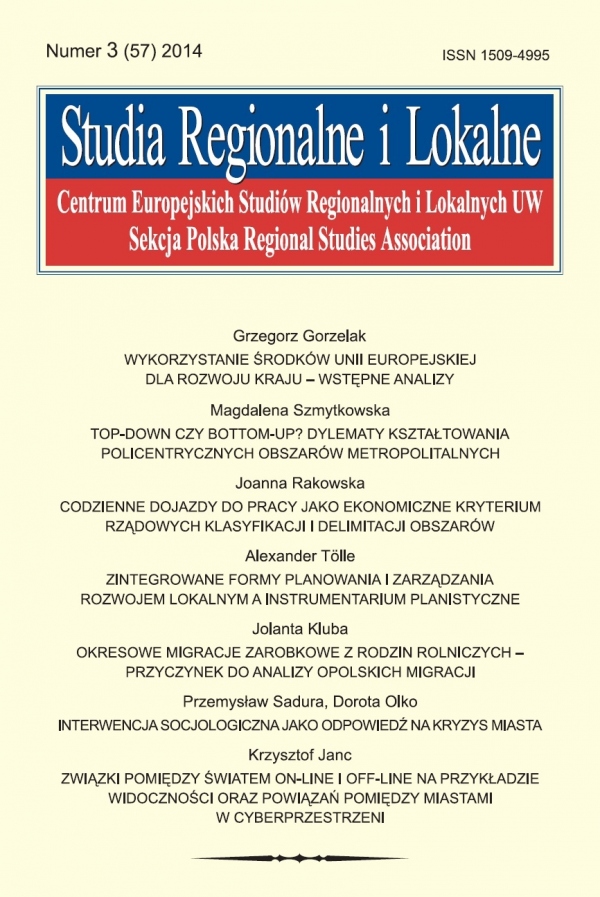Issue:
3(57)/2014
Alexander Tölle
Integrated forms of planning and managing local development and the planning toolkit. The contrast between the Polish and the German system
DOI: 10.7366/1509499535704
Zintegrowane formy planowania i zarządzania rozwojem lokalnym a instrumentarium planistyczne. System polski na tle systemu niemieckiego
Wdrażanie form zintegrowanego planowania i zarządzania rozwojem lokalnym postrzegane jest dziś jako nieodzowna przesłanka pomyślnej polityki rozwoju. Wyrazem tego jest także wysoka ranga tych form w traktowaniu przez Unię Europejską rozwoju lokalnego. Niniejsza analiza stanowi ewaluację przystosowania polskiego systemu planowania zagospodarowania przestrzennego do wymagań zintegrowanego planowania i zarządzania rozwojem lokalnym poprzez przeciwstawienie polskiego systemu planistycznego systemowi niemieckiemu. Dotyczy ona kluczowych dla zintegrowanych form rozwoju lokalnego aspektów. Należą do nich: organizacja procesów planistycznych i partycypacyjnych, rola dokumentów planistycznych w zagospodarowaniu przestrzennym oraz dostępność operacyjnych narzędzi planistycznych. Znaczące różnice między systemami obu krajów skłaniają do wysunięcia tezy o małym poparciu form zintegrowanego planowania i zarządzania rozwojem lokalnym przez polski system planowania zagospodarowania przestrzennego nakierowanego wyłącznie na regulację inwestycji w przestrzeni.
Integrated forms of planning and managing local development and the planning toolkit. The contrast between the Polish and the German system
Integrated forms of planning and managing local development are seen today as essential for implementing a successful development policy. This is emphasized by the high priority of these forms in EU local development approaches. In his analysis, the author contrasts the Polish and the German planning system in order to evaluate the compatibility of the Polish spatial planning system with the requirements of integrated local development planning and management. The analysis concerns the areas defined as having key importance for integrated form of local development, i.e. the organization of planning and participation processes, the role given to planning documents in spatial management, and the availability of operational planning tools. The identified major differences between the two systems lead to the assumption that the Polish planning system hardly sustains integrated forms of planning and managing local development, as it is solely oriented towards regulating spatial development schemes.
Affiliation:
Alexander Tölle: Polsko-Niemiecki Instytut Badawczy Europejskiego Uniwersytetu Viadrina we Frankfurcie nad Odrą oraz Uniwersytetu im. A. Mickiewicza w Poznaniu, Collegium Polonicum w Słubicach, ul. Kościuszki 1, 69-100 Słubice;
atoelle@amu.edu.pl 


